New Scientist covers the latest developments in science and technology that will impact your world. New Scientist employs and commissions the best writers in their fields from all over the world. Our editorial team provide cutting-edge news, award-winning features and reports, written in concise and clear language that puts discoveries and advances in the context of everyday life today and in the future.
Elsewhere on New Scientist
The invention imperative • While cutting emissions is vital to tackle the climate crisis, so too is innovation
New Scientist
Deadly blizzards hit US • North America has faced severe winter storms, while parts of Europe have seen record warmth for January, reports Madeleine Cuff
Cave art symbols deciphered • Mysterious marks drawn on cave walls by Stone Age people may have been an early form of writing used to record the behaviour of animals, finds Alison George
New way to sneak drugs into brain has promise for hard-to-treat illnesses
Frogs ‘hide’ their blood to become more see-through
Analysis Environment • Will new biodiversity targets revitalise the natural world? The Kunming-Montreal pact sets bold ambitions for protecting wildlife, but a dispute about finance risks undermining it, says Madeleine Cuff
Parasitic DNA may shorten our lives without even damaging genes
Canada geese return twice as quickly if you shoo them away
Messages from the other side • It may be possible to send a signal back through a wormhole before it collapses
Golf robot navigates to a ball and sinks a putt by itself
Living in trees may have led to the evolution of consonants
Mars has enough wind to power bases all year round
Turning Iceland green • The small nation contributes little to climate change, but is developing a suite of technologies that could help other countries cut their carbon emissions, reports Michael Le Page
Ichthyosaurs used a barren region of the ocean as an ancient nursery
Hundreds of genetic variants appear to raise the risk of gout
Super-absorbent towel beats paper
Spiky genitals stop wasps being lunch
Cochlear implants could become more effective
Really brief
The art of science • Science is key to addressing global health challenges, but it needs to work with the arts to reach all who could benefit, says Danielle Olsen
Field notes from space-time • The heart of quantum mechanics There are alternative interpretations to wave-particle duality, but we don’t teach them. This limits our students, says Chanda Prescod-Weinstein
Pretty in pink
Your letters
Restoring the wonder in life • Taking the feeling of awe seriously can add meaning to our lives – and even help us engage with huge problems like climate change, finds Sarah Phillips
Successful invaders • From 30-metre-long tapeworms in blue whales to leeches living in hippos’ anuses, the story of parasites is riveting, says Gege Li
Don’t miss
The sci-fi column • Animal uprising Imbuing animals and robots with sapience and self-awareness is a common theme in sci-fi. Annalee Newitz’s new novel shows how this can go very wrong – and asks whose intelligence is being used as the template, finds Sally Adee
Be your own hero • You can boost well-being and achieve your personal goals by taking control of your self-narrative, finds David Robson
Story time
How to save ourselves • Which innovations should we prioritise if we are to secure the future of humanity and the environment? Vaclav Smil has the answers
Bigger and better
Crystal masters • Takashi Taniguchi and Kenji Watanabe are the unsung heroes of a two-dimensional materials revolution. Anna Demming asks them about their unusual path...

 Jul 27 2024
Jul 27 2024
 Jul 20 2024
Jul 20 2024
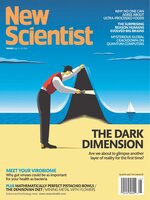 Jul 13 2024
Jul 13 2024
 Jul 06 2024
Jul 06 2024
 Jun 29 2024
Jun 29 2024
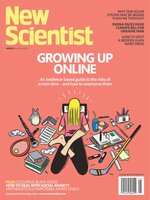 Jun 22 2024
Jun 22 2024
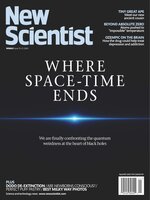 Jun 15 2024
Jun 15 2024
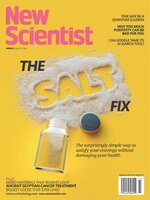 Jun 08 2024
Jun 08 2024
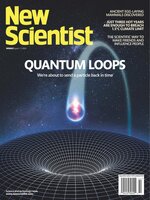 Jun 01 2024
Jun 01 2024
 May 25 2024
May 25 2024
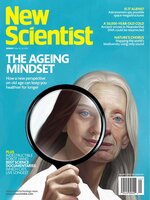 May 18 2024
May 18 2024
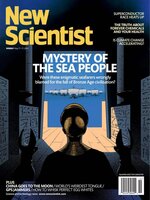 May 11 2024
May 11 2024
 May 04 2024
May 04 2024
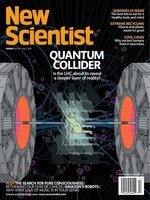 Apr 27 2024
Apr 27 2024
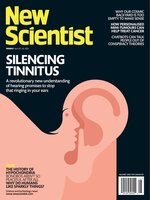 Apr 20 2024
Apr 20 2024
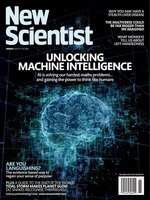 Apr 13 2024
Apr 13 2024
 Apr 06 2024
Apr 06 2024
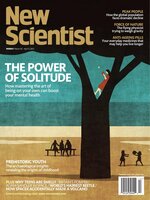 Mar 30 2024
Mar 30 2024
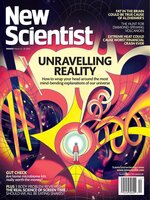 Mar 23 2024
Mar 23 2024
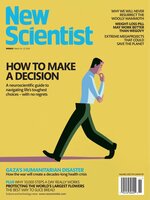 Mar 16 2024
Mar 16 2024
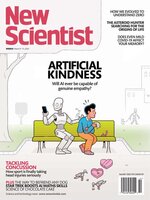 Mar 09 2024
Mar 09 2024
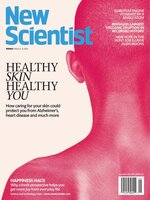 Mar 02 2024
Mar 02 2024
 Feb 24 2024
Feb 24 2024
 Feb 17 2024
Feb 17 2024
